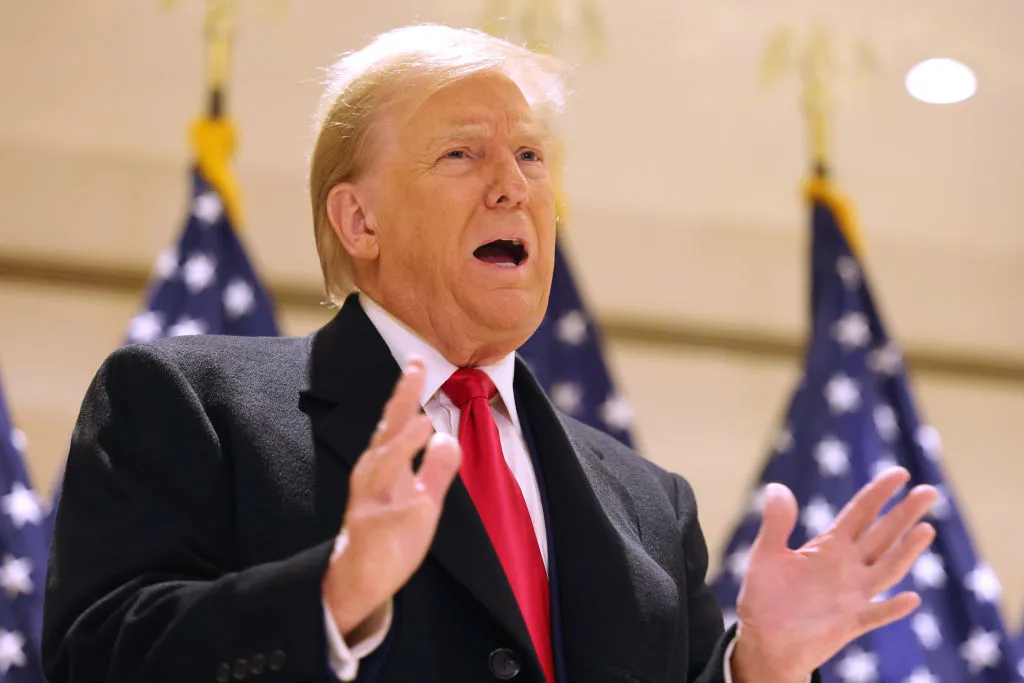Abortion was the single biggest issue that led to Donald Trump winning the 2016 election. It may be the single biggest issue that leads him to lose in 2024.
The death of Antonin Scalia in Texas in February of 2016 set the presidential election in stark relief. Effectively, voters were asked not just to name the next president, but to decide simultaneously the immediate future of the Supreme Court. Elect Hillary Clinton and you get a Court that will enshrine abortion for eternity; elect Trump and the possibility that Roe v. Wade could be reversed in the decade to come stays alive.
This is one of the reasons that Trump, a lifelong limousine liberal on issues like abortion, went so hard into the paint on the topic. He went hard at Hillary in the debates on the topic, repeatedly stressed his pro-life endorsements, spoke to the March for Life, brought his pro-life supporters into the Oval Office and ultimately delivered the Supreme Court majority that he promised in Neil Gorsuch, Brett Kavanaugh and Amy Coney Barrett.
Be careful what you wish for. Ever since the Dobbs ruling that sent the abortion issue back to the states, no Republican has worked harder to distance themselves from that decision than Donald Trump. Those close to him say that he believed the ruling was a huge political liability, that he personally favors a week standard along the twenty-week mark — effectively, a Roe-adjacent policy — and that Republicans need to distance themselves from the same pro-life movement he once embraced.
Now, in an interview with the new host of Meet the Press, Trump is openly speculating about a grand compromise that will bring the pro-abortion and anti-abortion sides together in some utterly fictional repurposing of the Art of the Deal.
“I think they’re all going to like me,” he said in an interview with NBC’s Kristen Welker. “I think both sides are going to like me.”
Except this isn’t the way the politics of abortion works. Trump knows this, which is why the framework of his supposed deal is as ethereal as his plan to end the Ukraine conflict in twenty-four hours. He claims not to care whether the policy is federal or state. He won’t stick to a number of weeks or months, instead just decrying the heartbeat bill signed by Ron DeSantis. Which is, by the way, the same policy adopted in Ohio, Georgia, Louisiana, Missouri, Alabama, Kentucky, South Carolina, North Dakota, Texas and Iowa — a list that encompasses the states of nearly all of Trump’s rivals for the nomination.
The truth is that Trump has now placed himself as the furthest left Republican candidate on the abortion issue, favoring a nationwide standard that is well to the left of the mainstream opinion in his party. In doing so, he undermines everything that pro-lifers have been working towards for years, even in the wake of re-electing the governors who signed these heartbeat measures into law.
He’s also gambling that he can hold on to a faction of Republicans who are now his base. As Byron York notes:
There were some clear differences between South Carolina Republicans who support Trump and South Carolina Republicans who support another GOP candidate. Trump Republicans are more strongly anti-abortion: 73 percent said they believe abortion should be illegal in most or all cases, versus 44 percent of non-Trump Republicans who feel the same way.
The dangerous game Trump is playing is that by assuming an abject and spineless posture, he’ll entice more suburban women voters back to his side without losing the pro-life voters who supported him last time around. Surrounded by people who don’t care about the abortion issue except to the extent it is politically useful, he is displaying the instinct of a fearful animal, unwilling to fight the left on rough ground. What judicial nominations can be expected of a Trump presidency if he views the Federalist Society as a suspect ally? Would he be on the side of Tommy Tuberville’s stand versus abortion funding in the military, or calling him out for risking America’s defenses? What will he do to please his fellow limousine liberals if the poll numbers look bad for a choice for SCOTUS? He has his legacy to think about this time, after all.
The pro-life movement maximized the outcome of the Trump presidency in its first go-round. But this time around, he’s signaling that he’s given up on them — he assumes their loyalty for his past decisions, regardless of what he does next. For the many American voters for whom abortion is the single most important issue for their involvement in politics, his honesty is appreciated. The left won’t accept him, and now the pro-life cause has every reason to doubt him. He intends to run from the fight before it is even joined like a coward, who as Shakespeare reminds us, dies a thousand times before his death.






















